Support OpenDurham.org
Preserve Durham's History with a Donation to Open Durham Today!
OpenDurham.org is dedicated to preserving and sharing the rich history of our community. Run by our parent nonprofit, Preservation Durham, the site requires routine maintenance and upgrades. We do not ask for support often (and you can check the box to "hide this message" in the future), but today, we're asking you to chip in with a donation toward annual maintenance of the site. Your support allows us to maintain this valuable resource, expand our archives, and keep the history of Durham accessible to everyone.
Every contribution, big or small, makes a difference and makes you a member of Preservation Durham. Help us keep Durham's history alive for future generations.

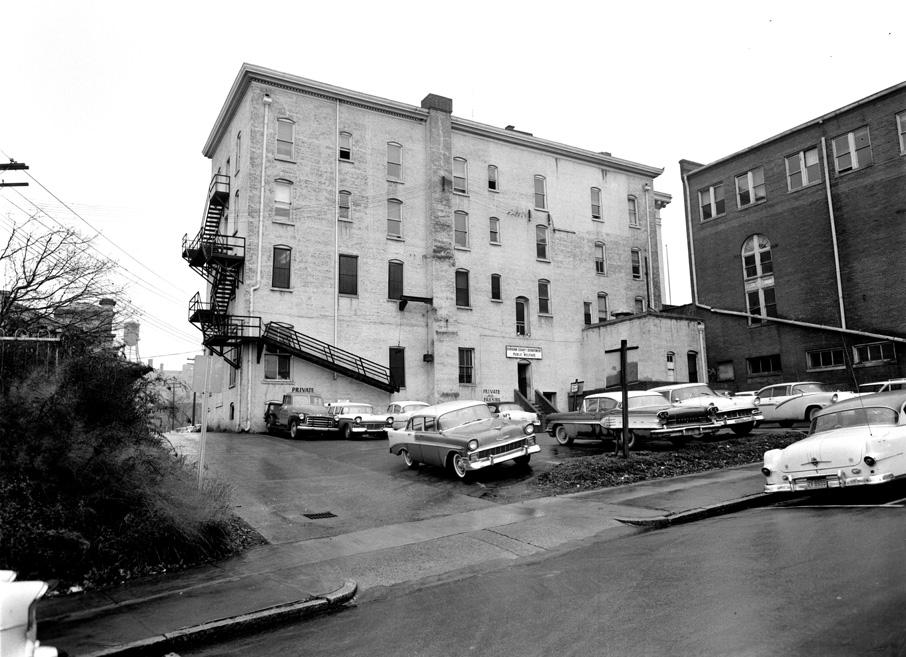
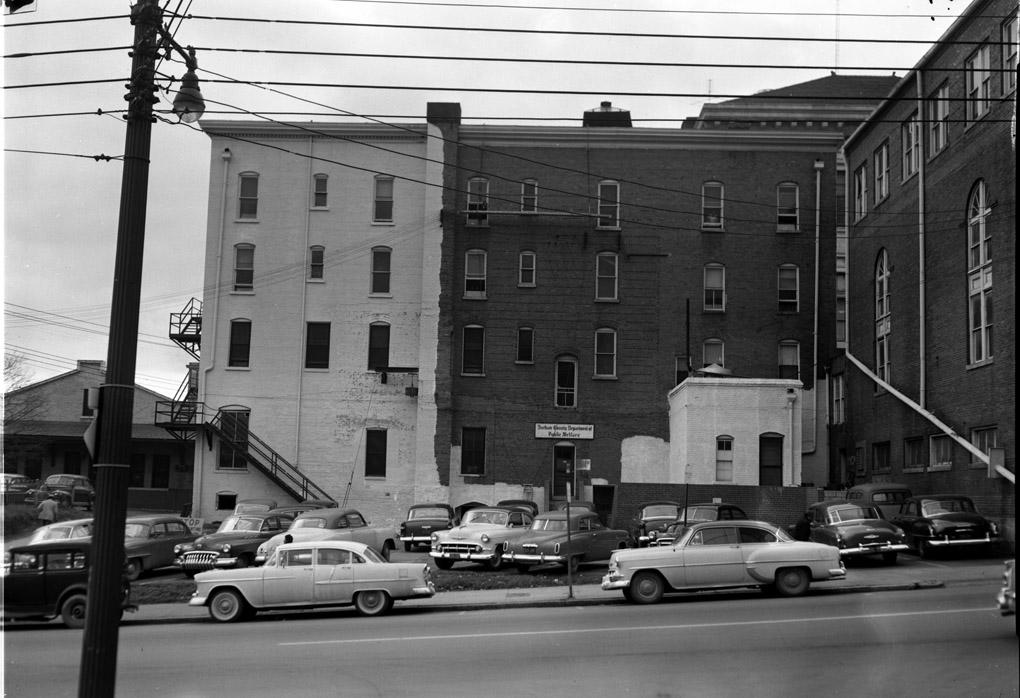
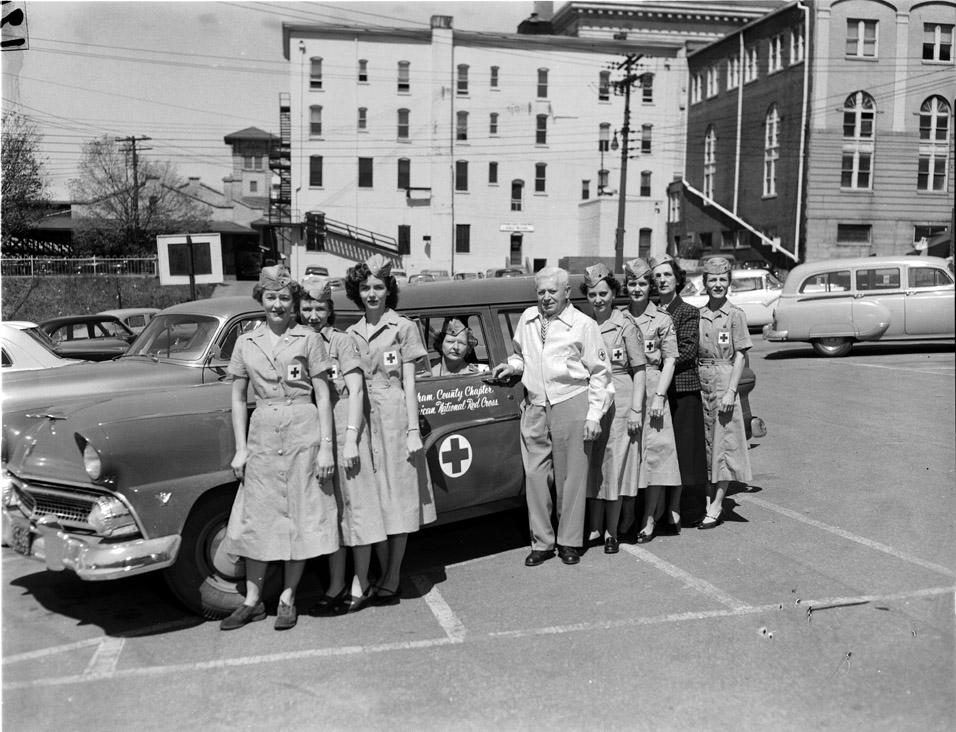
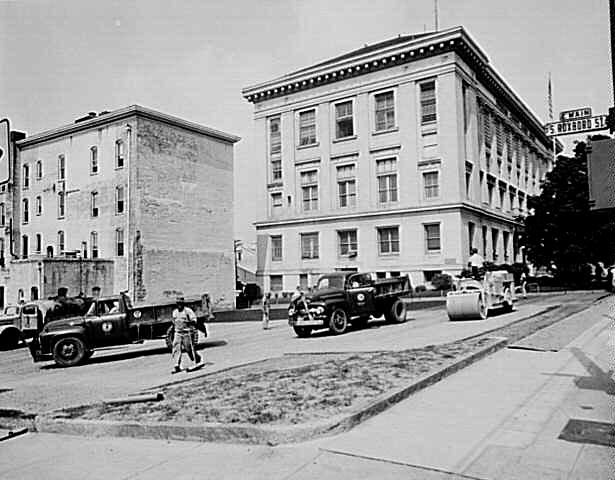
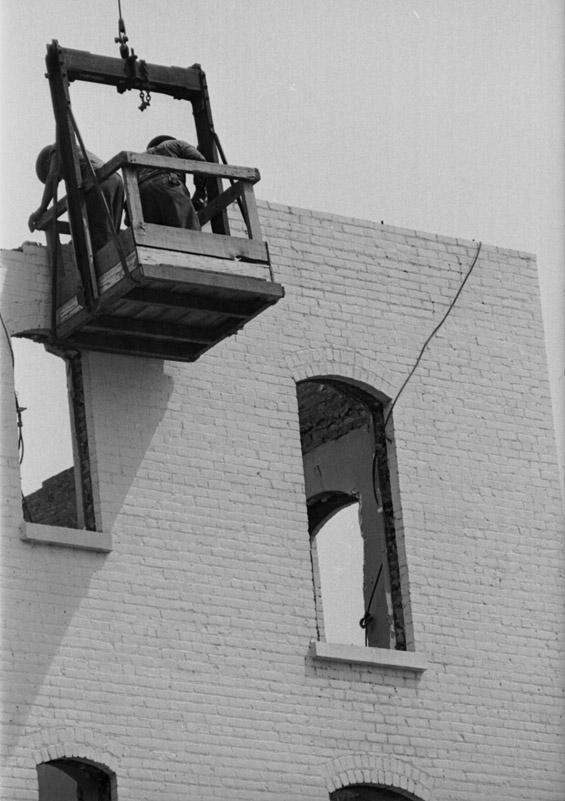
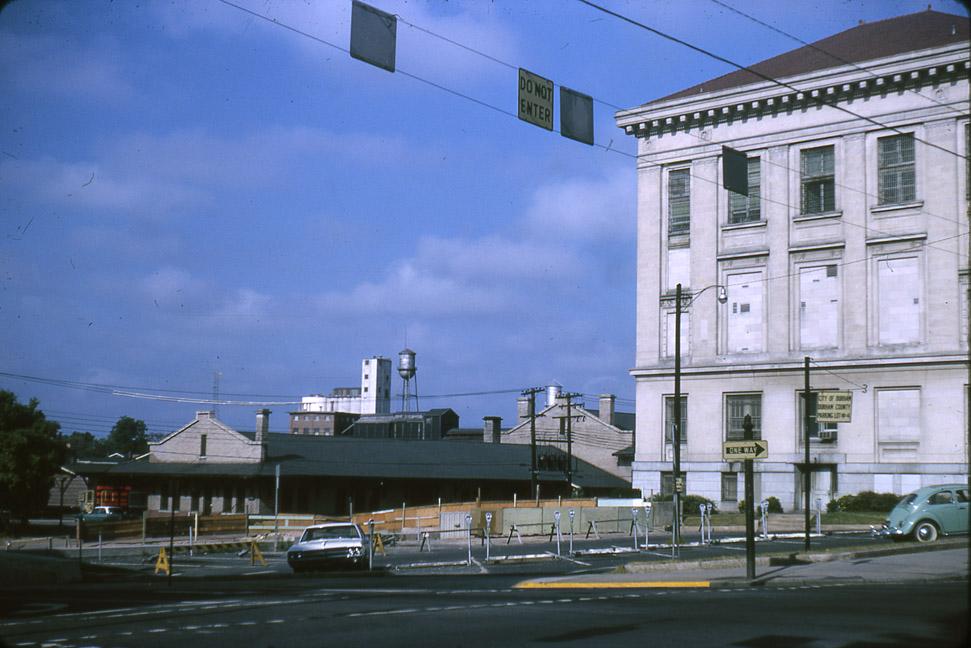
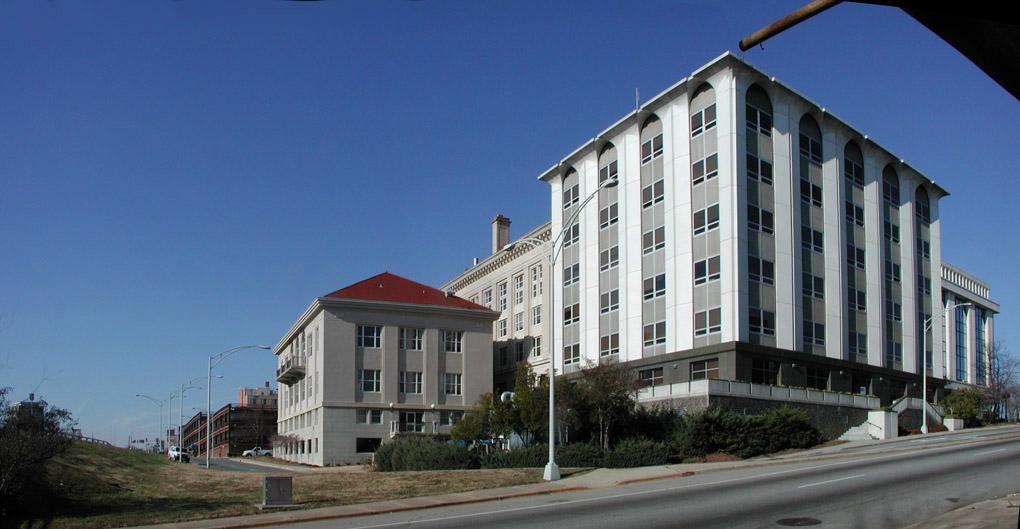
Comments
Submitted by Joseph H. (not verified) on Fri, 12/21/2007 - 5:11am
That corner is, um [insert complaints about Loop here]. :(
Submitted by Anonymous (not verified) on Fri, 12/21/2007 - 4:42pm
I nominate this building as *the* ugliest in Durham. Can it be 'urban renewed'?
Submitted by Michael Bacon (not verified) on Fri, 12/21/2007 - 5:32pm
Funny how these things go -- I don't have that much of a problem with it. (And would say it doesn't hold a candle to City Hall Annex or SouthBank.) My biggest problem with it is that it overpowers the old courthouse a bit, reducing the impact of one of our nicest historic buildings.
Submitted by Anonymous (not verified) on Fri, 12/21/2007 - 5:55pm
My Aunt worked in that building at the time the first picture was taken.I have a lot of memories of that place when I was small.I can still remember how dark it seemed inside and how old and creaky the floors were as you walked accross them.
Submitted by Anonymous (not verified) on Wed, 1/2/2008 - 3:31pm
The Salvation Army has always been directed towards alcoholics and urban homeless rather than general welfare. Prior to the 1919 NC law, a system similar to that in 17-19th century England was employed. Counties were divided into parishes (I think there were 5 in what is now Durham), each of which had a Poor Board. This group dispensed sums to individuals, paid room and board for others and arranged care for orphans. This was a last resort, of course. Most people receiving public support nowadays were taken care of entirely by their families at that time, e.g. the elderly and disabled. This system broke down in the 20th century and the state and federal governments had to step in.
Add new comment
Log in or register to post comments.